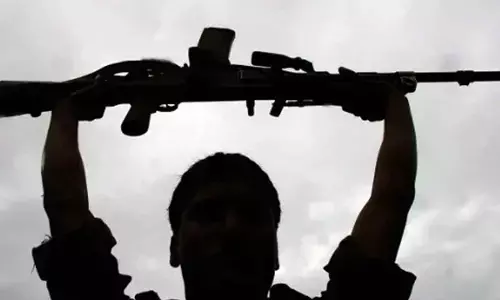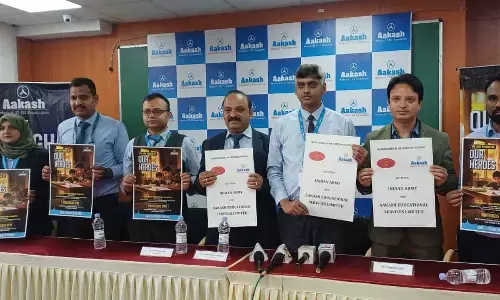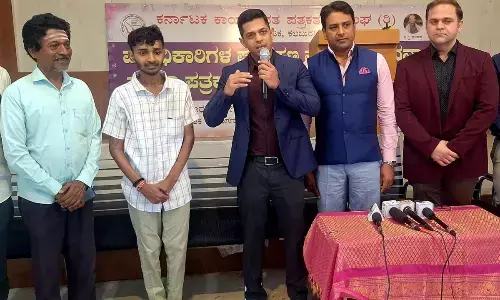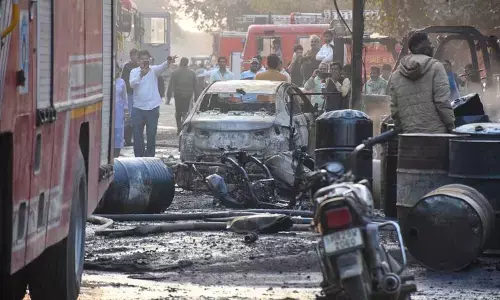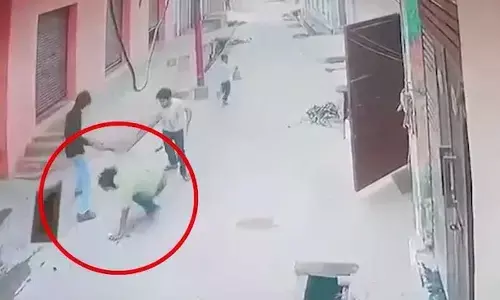How I ensured my CM won the argument!

How I Ensured My CM Won The Argument!, KR Venugopal, Brahmananda Reddy. Chief Minister Brahmananda Reddy demurred: “So, just because I asked you a few questions on what was happening during elections you have decided that I wanted you out of Warangal? That is wrong. Please go back”.
Chief Minister Brahmananda Reddy demurred: “So, just because I asked you a few questions on what was happening during elections you have decided that I wanted you out of Warangal? That is wrong. Please go back”. I was determined that the CM should win and not me in this discussion. The advice received from my first Collector MV Rajagopal IAS was relevant. My idea of the CM winning was my not accepting his exceptionally generous order; he should win in the eyes of the public and not me
The first Collector from whom I received training as assistant collector in Nellore district was MV Rajagopal IAS. A brilliant thinker and genuine devotee of the decentralised Panchayat Raj governance, he had once advised me quoting a British civil service tradition and conviction thus: “As a civil servant, you may argue as much as you want with your minister but remember and ensure that in a democracy ultimately it is the minister who should win the argument”. This was in 1963 and I had not thought favourably of the universal applicability of this concept at the time.
As I mentioned in my last piece, thanks to PV Narasimha Rao, the guns of politics stopped from booming from the Khammam front but matters, however, did not end there.

The Congress leadership’s preoccupation with the district continued perhaps prompted by the emergence of the Telangana Praja Samiti as a powerful challenger to it in the general elections that were to follow in early 1971. Within days of the polling for the gram panchayat elections the Deputy Chief Minister JV Narasing Rao arrived in Mahabubabad to “investigate” the complaints from the members of the ruling party against the district administration (read Collector) that it was favouring the opposition.
After meeting his party men, he met and the Superintendent of Police and demanded to know why we “were supporting the opposition”. When this was denied he summoned the RDO M Narayana to explain why he was being partial to the other side. At that stage I told the Deputy Chief Minister that if he had a problem about the law and order enforcement in the district, he should address me and not the RDO.
There was stunned silence all around and even the Superintendent of Police, a very senior man, became demonstrably anxious. Despite all this, development work proceeded in the district apace on various fronts like programmes under the Special Telangana Development Funds; high yielding varieties programmes in agriculture; land assignment to SCs and STs; Reserve Bank of India’s short term loans; 15% and 3% earmarked funds for SCs and STs; and drought relief work. With extremists’ actions challenging the Government in the tribal areas,I figured that on-the-spot decisions were the only solution to the long-neglected problems of the tribes.
I approached the Government with an innovative programme asking for a “Revolving Fund” of Rs 1 lakh to be kept at the Collector’s disposal so I could sanction during my tours, instantly on demand, programmes like drinking water wells, seeds, irrigation wells, plough bullocks et al, the expenditure to be subsequently recouped from the regular district Plan allocations under these development heads. My district officers were convinced that this idea would never fructify but, lo and behold, the Government sanctioned it! I travelled in my jeep in the tribal interior implementing development programmes employing this mechanism, equipped with a type writer to issue sanction orders and accompanied by one of the most redoubtable District Tribal Welfare officers ever, Krishna Rao.
We also carried essential tribal needs like dried fish, tobacco and salt in the jeep! The point here is that my problems with the “political” leaders never came in the way of the Government backing development initiatives for the poor. There was trust. During this period some outstanding leaders like J Chokka Rao, Chairman, Telangana Regional Committee;home minister Jalagam Vengal Rao, who would become Chief Minister a few years later; and Union Labour Minister KV Raghunatha Reddy visited the district and encouraged the ongoing work.
The General Elections that ensued in 1971 were distinguished for two events – the election of SB Giri of the Telangana Praja Samiti for the Warangal Lok Sabha seat and the induction of the Indian Army for security in the conduct of elections in the forest areas.
The cumulative fall out of the combination of all these developments in this politically very important district was that Chief Minister Brahmananda Reddy announced he would himself visit Mahabubabad to check on the law enforcement complaints by his party men against the “district administration”. He spent the entire forenoon with his party men in the MLA’s ghadi and met me and the new Superintendent of Police in the Travelers Bungalow in the afternoon.
The CM spoke for nearly half an hour, never once raising his voice nor looking at me, listing the complaints made against law and order enforcement during the Panchayat elections and how the Congress party workers were singled out for harsh treatment. As I kept listening to the Chief Minister, the advice I had received from the Collector who had trained me, mentioned in the beginning of this article about how “in a democracy ultimately it is the minister who wins the argument” came to my mind.
I decided that, after all these 15 months of work, the time had come for a new Collector in the district. I never once spoke till the CM finished and then told him that whatever law enforcement was done was in good faith and for good reason, and not intended to influence the polls. Without indicating my decision, I told him that I would ensure that he would have no further cause for any discomfort in the district on account of me. He appeared quite satisfied about what I said. As he got ready for the public meeting he was to address at Mahabubabad later in the evening, I informed his security officer Sitapati that I would be returning to Warangal and that the DRO would deputise for me till the CM left.
I spoke to the new Chief Secretary VK Rao, ICS, about the CM’s feelings as expressed by him and sought two months’ earned leave so the Government might find a successor for me. The Chief Secretary asked me to see him in his office at Hyderabad which I did. I explained to him that I was expected to see the elections through peacefully and successfully so the people exercised their franchise fearlessly. If stern measures were needed they were taken. I told him: “It is not in my line to use police officers to support any political factions”. Rao laughed at this turn of phrase. He granted me two months leave. This was in June 1971.
I returned from leave in late July 1971 and reported to the Chief Secretary for a posting. He said that the Chief Minister had desired I should meet him. I went to the Legislative Assembly to see the Chief Minister as the Assembly was in session. That was the July 28 and was Brahmananda Reddy’s birthday. He was dressed in new clothes, in a brown khadi dhoti and long shirt. He was receiving felicitations in the House. When he returned to his chambers I was called in. He asked me: “So, when are you rejoining in Warangal? “. I was astonished. He was posting me back to Warangal as Collector after all that had happened? I told him that it was best that I should be out of Warangal including as a mark of the Chief Minister’s will prevailing in the matter. I pointed out to him that in any case there would rise a perception in the district if I returned that now I would function differently because I did not have the backing of the Chief Minister.
The Chief Minister demurred: “So, just because I asked you a few questions on what was happening during elections you have decided that I wanted you out of Warangal? That is wrong. Please go back”. I was determined that the CM should win and not me in this discussion. The advice received from my first Collector MV Rajagopal IAS was relevant. My idea of the CM winning was my not accepting his exceptionally generous order; he should win in the eyes of the public and not me. After further remonstrance by both of us in favour of our respective stands the Chief Minister finally yielded to my position that I did not wish to return to Warangal.
I was posted as Additional Director of Industries, then considered a post above my seniority. However, in the scheme and logic of democratic politics, who are civil servants to hand moral victories to senior political leaders? Civil servants are too small for that. As it happened, Brahmananda Reddy was to resign very shortly afterwards and PV Narasimha Rao would succeed him as Chief Minister. If I thought that I would no more see Brahmananda Reddy play any part in my life again I was mistaken for he indeed would in a remote but noble way.
Meantime, the lesson learnt in Warangal was that public order, which meant the imperative of proper maintenance of law and order as fundamental to the right to vote in a democracy,and development are not a zero sum game in a democracy, and that they together constitute good governance. Our leaders, whatever their personal predicament, respected that concept of good governance those days. That lesson is valid today as it would be forever.
Next Story





